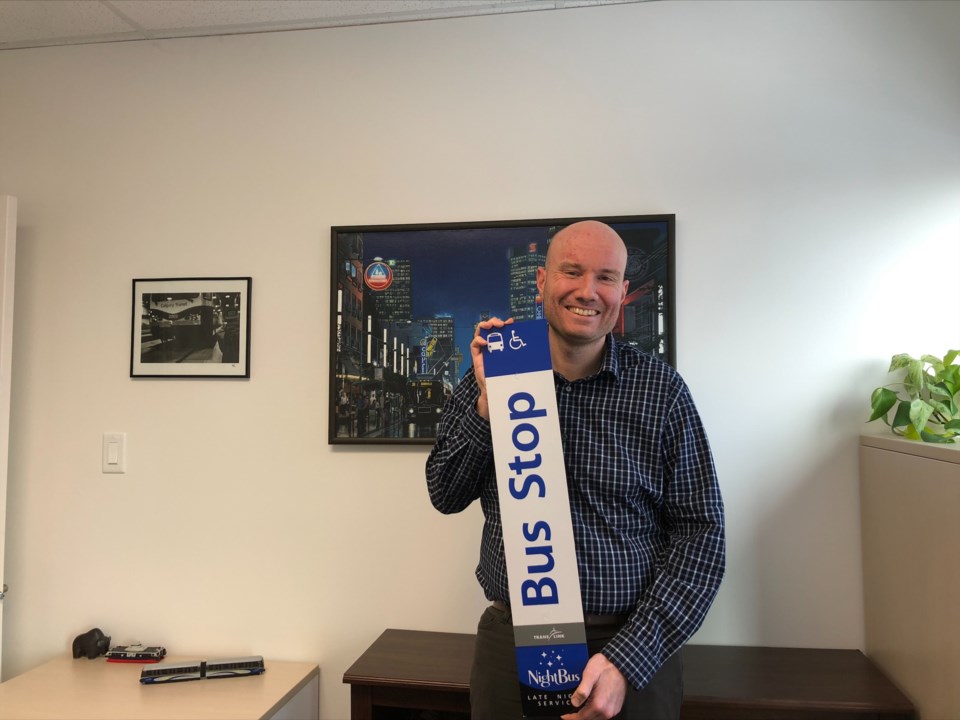Â鶹´«Ã½Ó³»has had a public transit system for over a century.
From the evolution of trolleys and introduction of the SkyTrain, one Â鶹´«Ã½Ó³»family has seen it all.
David Cooper has worked for TransLink for many years. Before he came into the organization, his father worked in it, too. And before that, Cooper's grandfather pioneered the family's legacy of working in Vancouver's transit system.
Cooper's grandfather entered the transit workforce in 1956 and retired in 1984 after working as a transit operator for 28 years, Cooper tells Â鶹´«Ã½Ó³».
That means Cooper's grandfather has seen the region's transit change authorities three times, and Cooper himself saw the most recent switch in authority.
Metro Vancouver's transit network was operated by independent companies in the 1890s before changing hands to the BC Electric company in 1897.
In 1962, after Cooper's grandfather had been with the organization for eight years, authority switched to BC Hydro, then to Metro Transit Operating Company in 1973, BC Transit in 1983 and, finally, to TransLink in 1999.
Cooper's grandfather was based out of TransLink's original transit garage at Oakridge and 41st Avenue station, before the organization sold the land and moved the transit centre to Marine Drive, Cooper tells V.I.A.
"He would have driven everything out of Vancouver. All the trolleys, all the diesel routes, and then I think he was out of Burnaby for a little period of time," he shares.
Cooper is a third-generation TransLink worker and third-generation Vancouverite.
"My dad's side of the family emigrated from England roughly around [1956]," says Cooper. "My grandfather served in the war and as the country was rebuilding and ... he came to Â鶹´«Ã½Ó³»and there was an opportunity to go work for transit at the time."
Working as a transit operator offered stability, explains Cooper, and it allowed his grandparents to raise a family.
'There's things that will trigger those memories of my grandfather'
Cooper's father had a much smaller role in Vancouver's transit. "My dad worked in maintenance back in his university days when he was going to SFU," he says.
There were many work opportunities in after-hours maintenance for transit buses and vehicles at the Oakridge Transit Centre at the time, he adds.
Cooper's own fascination with Vancouver's transit system led him to work for TransLink too and later start his own consulting firm (he continued to work with the organization through his firm).
In his time with the transit authority, he was able to work on routes that his grandfather once drove. "Rerouting [trolley routes] for Broadway SkyTrain extension was really cool because I [worked on] services that my grandpa drove for decades," says Cooper.
Cooper adds that it can be easy to overlook the family's long history with TransLink when getting carried away with work, but "there's things that will trigger those memories of my grandfather talking about his time [in transit] and sometimes my dad," he shares.
Looking back, Cooper notes that he's not only witnessed but also helped Vancouver's transit history through pivotal moments.
Cooper has worked on two noteworthy projects with the transit authority; introducing double decker buses and the first battery electric buses into TransLink's fleet. "There's a historical piece that will come with that," he says.
Cooper adds that if the transit legacy continues in the family it would be "really awesome and cool."





